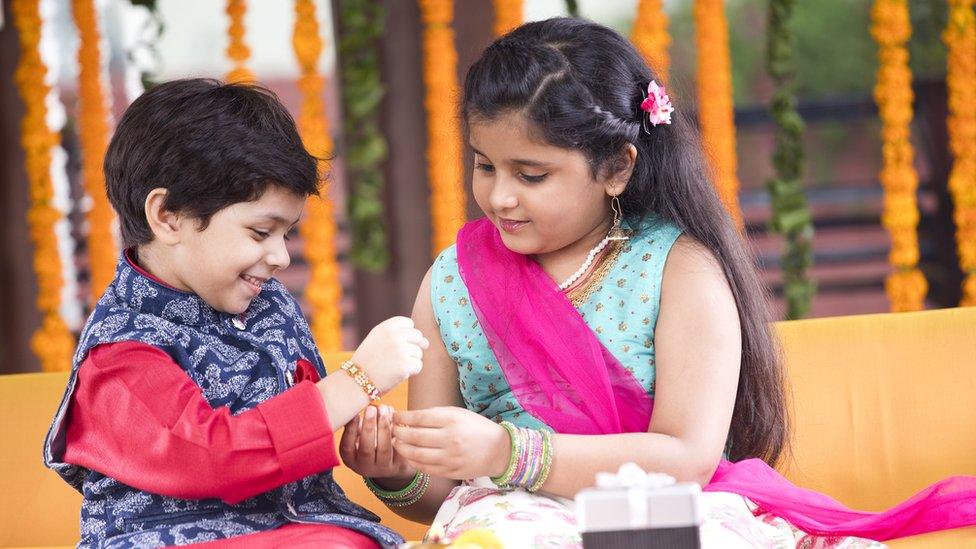Raksha Bandhan: What is it, when is it and how is it celebrated?
- Published

The sister ties a rakhi, which is a type of bracelet, around her brother's wrist
Raksha Bandhan is a popular Hindu festival that celebrates the bond between brothers and sisters.
It happens every year at the end of August - this year it's on the 30th.
Hindus in India and around the world celebrate Raksha Bandhan in lots of different ways.
Usually it involves the sister tying a bracelet around her brother's wrist.
Raksha Bandhan is celebrated because of a story about the god Lord Krishna
History of Raksha Bandhan
Raksha Bandhan is celebrated to remember an ancient story from a Hindu scripture called The Mahabharata. Hinduism has many different gods and Raksha Bandhan is dedicated to a story about the god Krishna.
Krishna had a very strong bond with a woman called Draupadi. The story says that Krishna had hurt his finger and Draupadi cut a piece of her saree, a traditional Indian dress, to tie around his finger as a bandage.
Krishna then promised Draupadi to return the favour and help her when she needed it. When Draupadi was in trouble, Krishna came to save her and this why the festival is celebrated.
Raksha means 'protection' and bandan means 'to tie'.
A rakhi is a piece of thread - traditionally made from cotton
When is Raksha Bandhan?
This year's celebration is on 30 August.
It usually takes place on the full moon in the month of Sravana, which is a month in the Hindu lunar calendar. This means that the festival is celebrated at the end of August.
The brother gives a gift in exchange for his sister's blessing
How is Raksha Bandhan celebrated?
The festival is celebrated differently in many different parts of India but usually the family gets together in their fancy clothes and they eat lots of delicious food and Indian sweets.
During the festival the sister ties a rakhi on her brother's wrist and the brother wishes that their sister is happy and healthy.
Many different types of rakhi are on sale to choose from
A rakhi is a piece of thread traditionally made from cotton but, nowadays rakhis are very colourful with many different designs.
Shops in India display the rakhis by hanging them so that people can easily choose their favourite.
After the rakhi is tied, the siblings usually exchange presents.
Nowadays, even if you don't have a brother you can give a rakhi to other members of your family or close friends.
- Published22 March
